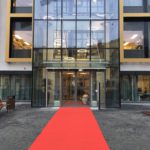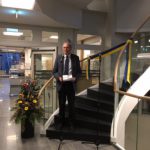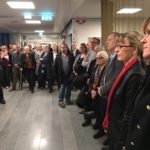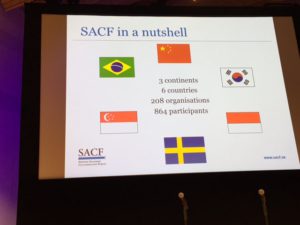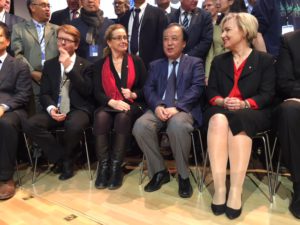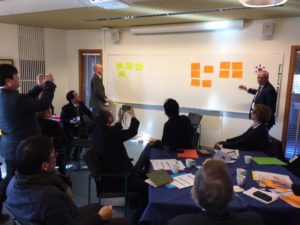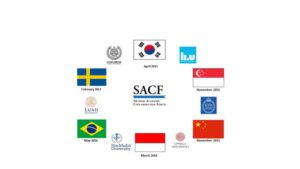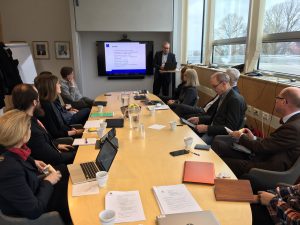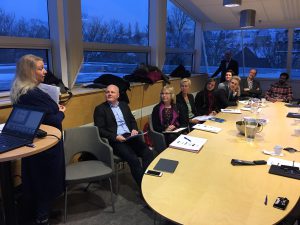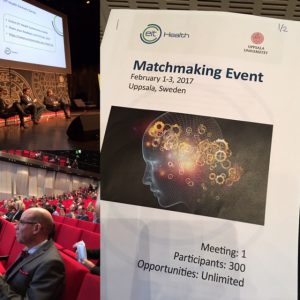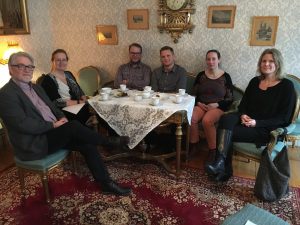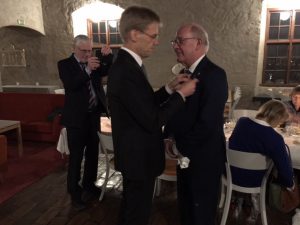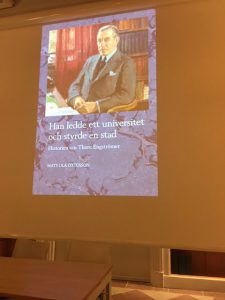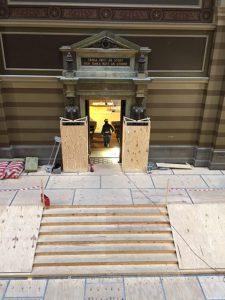(Original Swedish post published 18 February.)
The Q&R17 project is now entering its most intensive phase. The departments are hard at work on their self-evaluations and on Tuesday we had a visit from the people who will be chairing the panels and panel members chosen for their research on or other expertise in research environments. We spent a very interesting afternoon explaining and discussing the design and purpose of this evaluation and how it differs from the more traditional research evaluations we have conducted previously. It is important that the panels fully understand that their task this time is not to grade the research as such but to give us critical feedback on how well the processes driving quality and renewal work in our research environments. This is why it is important that the panel chairs in particular are set on this track from the start.
The week also featured a ‘reinauguration’ of the Rudbeck Laboratory after extensive alterations and extension. On Thursday it was time for the symbolic ribbon-cutting ceremony, with music and a well-attended mingle. There were speeches by the Director of the Rudbeck Laboratory, Helena Jernberg Wiklund, as well as by Eva, Stellan Sandler and a representative of the landlord, Landstingsservice.
The week ended with the year’s first meeting of the University Board, held at SciLifeLab. As usual, the first item was the Vice-Chancellor’s report. This time some extra emphasis was given to the boosting of fundraising and alumni relations. The agenda included some of the year’s formal items, the adoption of the annual report for 2016 and the University’s budget input to the government for 2018–2020.
The annual report is the University’s formal report to the government. It is satisfying to note that things are going well for Uppsala University. We have a balanced economy. Our programmes continue to attract high numbers of of applicants. Research funding is translated into research. After several years of growth, the rise in the number of employees is now levelling out and the number of students is declining slightly – a planned adjustment to the funding ceiling allocated by the government. The number of fee-paying students continues to increase. The annual report contains many interesting details that reward closer study.
In our budget input to the government, Uppsala University emphasises the need for higher compensation per student, especially in laboratory-intensive programmes. The University also wants more student places. In particular, as a broad, full-scale university we want to be able to offer more freestanding courses. We also underline the importance of eliminating obstacles to internationalisation. You will be able to find both the budget input and the annual report on the website at the beginning of next week.
The University Board also adopted a plan for next year’s internal audit. Among other things, the auditors will examine how the University handles the storage of research data, the role of heads of department, activity planning and registration. The meeting concluded with a preparatory discussion on a Mission and Core Values document for Campus Gotland and a report on the University’s procedures for preventing and dealing with misconduct in research.

